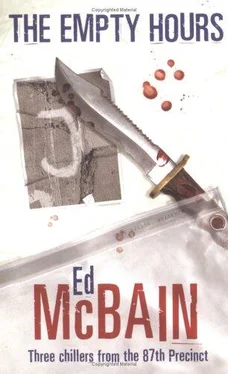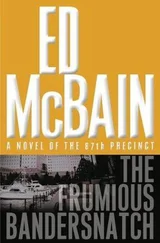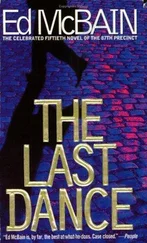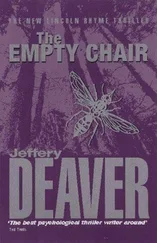Ed McBain - The Empty Hours
Здесь есть возможность читать онлайн «Ed McBain - The Empty Hours» весь текст электронной книги совершенно бесплатно (целиком полную версию без сокращений). В некоторых случаях можно слушать аудио, скачать через торрент в формате fb2 и присутствует краткое содержание. Жанр: Политический детектив, на английском языке. Описание произведения, (предисловие) а так же отзывы посетителей доступны на портале библиотеки ЛибКат.
- Название:The Empty Hours
- Автор:
- Жанр:
- Год:неизвестен
- ISBN:нет данных
- Рейтинг книги:3 / 5. Голосов: 1
-
Избранное:Добавить в избранное
- Отзывы:
-
Ваша оценка:
- 60
- 1
- 2
- 3
- 4
- 5
The Empty Hours: краткое содержание, описание и аннотация
Предлагаем к чтению аннотацию, описание, краткое содержание или предисловие (зависит от того, что написал сам автор книги «The Empty Hours»). Если вы не нашли необходимую информацию о книге — напишите в комментариях, мы постараемся отыскать её.
The Empty Hours — читать онлайн бесплатно полную книгу (весь текст) целиком
Ниже представлен текст книги, разбитый по страницам. Система сохранения места последней прочитанной страницы, позволяет с удобством читать онлайн бесплатно книгу «The Empty Hours», без необходимости каждый раз заново искать на чём Вы остановились. Поставьте закладку, и сможете в любой момент перейти на страницу, на которой закончили чтение.
Интервал:
Закладка:
“What do you think?” he asked Carella.
Carella nodded. “Let’s try him.”
4
If America is a melting pot, the 87th Precinct is a crucible. Start at the River Harb, the northernmost boundary of the precinct territory, and the first thing you hit is exclusive Smoke Rise, where the walled-in residents sit in white-Protestant respectability in houses set a hundred feet back from private roads, admiring the greatest view the city has to offer. Come out of Smoke Rise and hit fancy Silvermine Road where the aristocracy of apartment buildings have begun to submit to the assault of time and the encroachment of the surrounding slums. Forty-thousand-dollar-a-year executives still live in these apartment buildings, but people write on the walls here, too: limericks, prurient slogans, which industrious doormen try valiantly to erase.
There is nothing so eternal as Anglo-Saxon etched in graphite.
Silvermine Park is south of the Road, and no one ventures there at night. During the day, the park is thronged with governesses idly chatting about the last time they saw Sweden, gently rocking shellacked blue baby buggies. But after sunset, not even lovers will enter the park. The Stem, further south, explodes the moment the sun leaves the sky. Gaudy and incandescent, it mixes Chinese restaurants with Jewish delicatessens, pizza joints with Greek cabarets offering belly dancers. Threadbare as a beggar’s sleeve, Ainsley Avenue crosses the center of the precinct, trying to maintain a dignity long gone, crowding the sidewalks with austere but dirty apartment buildings, furnished rooms, garages and a sprinkling of sawdust saloons. Culver Avenue turns completely Irish with the speed of a leprechaun. The faces, the bars, even the buildings seem displaced, seem to have been stolen and transported from the center of Dublin; but no lace curtains hang in the windows. Poverty turns a naked face to the streets here, setting the pattern for the rest of the precinct territory. Poverty rakes the backs of the Culver Avenue Irish, claws its way onto the white and tan and brown and black faces of the Puerto Ricans lining Mason Avenue, flops onto the beds of the whores of La Via de Putas, and then pushes its way into the real crucible, the city side streets where different minority groups live cheek by jowl, as close as lovers, hating each other. It is here that Puerto Rican and Jew, Italian and Negro, Irishman and Cuban are forced by dire economic need to live in a ghetto which, by its very composition, loses definition and becomes a meaningless tangle of unrelated bloodlines.
Rabbi Solomon’s synagogue was on the same street as a Catholic church. A Baptist store-front mission was on the avenue leading to the next block. The candy store over which the man named Finch lived was owned by a Puerto Rican whose son had been a cop — a man named Hernandez.
Carella and Meyer paused in the lobby of the building and studied the name plates in the mailboxes. There were eight boxes in the row. Two had name plates. Three had broken locks. The man named Finch lived in apartment thirty-three on the third floor.
The lock on the vestibule door was broken. From behind the stairwell, where the garbage cans were stacked before being put out for collection in the morning, the stink of that evening’s dinner remains assailed the nostrils and left the detectives mute until they had gained the first-floor landing.
On the way up to the third floor, Carella said, “This seems too easy, Meyer. It’s over before it begins.”
On the third-floor landing, both men drew their service revolvers. They found apartment thirty-three and bracketed the door.
“Mr. Finch?” Meyer called.
“Who is it?” a voice answered.
“Police. Open up.”
The apartment and the hallway went still.
“Finch?” Meyer said.
There was no answer. Carella backed off against the opposite wall. Meyer nodded. Bracing himself against the wall, Carella raised his right foot, the leg bent at the knee, then released it like a triggered spring. The flat of his sole collided with the door just below the lock. The door burst inward, and Meyer followed it into the apartment, his gun in his fist.
Finch was a man in his late twenties, with a square crewcut head and bright green eyes. He was closing the closet door as Meyer burst into the room. He was wearing only trousers and an undershirt, his feet bare. He needed a shave, and the bristles on his chin and face emphasized a white scar that ran from just under his right cheek to the curve of his jaw. He turned from the closet with the air of a man who has satisfactorily completed a mysterious mission.
“Hold it right there,’ Meyer said.
There’s a joke they tell about an old woman on a train who repeatedly asks the man sitting beside her if he’s Jewish. The man, trying to read his newspaper, keeps answering, “No, I’m not Jewish.” The old lady keeps pestering him, tugging at his sleeve, asking the same question over and over again. Finally the man puts down his newspaper and says, “All right, all right, damn it! I’m Jewish.”
And the old lady smiles at him sweetly and says, “You know something? You don’t look it.”
The joke, of course, relies on a prejudice which assumes that you can tell a man’s religion by looking at his face. There was nothing about Meyer Meyer’s looks or speech which would indicate that he was Jewish. His face was round and cleanshaven, he was thirty-seven years old and completely bald, and he possessed the bluest eyes this side of Denmark. He was almost six feet tall and perhaps a trifle overweight, and the only conversation he’d had with Finch were the few words he’d spoken through the closed door, and the four words he’d spoken since he entered the apartment, all of which were delivered in big-city English without any noticeable trace of accent.
But when Meyer Meyer said, “Hold it right there,” a smile came onto Finch’s face, and he answered, “I wasn’t going anyplace, Jewboy.”
Well, maybe the sight of the rabbi lying in his own blood had been too much for Meyer. Maybe the words “sonei Yisroel” had recalled the days of his childhood when, one of the few Orthodox Jews in a Gentile neighborhood, and bearing the double-barreled name his father had foisted upon him, he was forced to defend himself against every hoodlum who crossed his path, invariably against overwhelming odds. He was normally a very patient man. He had borne his father’s practical joke with amazing good will, even though he sometimes grinned mirthlessly through bleeding lips. But tonight, this second night of Passover, after having looked down at the bleeding rabbi, after having heard the tortured sobs of the sexton, after having seen the patiently suffering face of the woman in black, the words hurled at him from the other end of the apartment had a startling effect.
Meyer said nothing. He simply walked to where Finch was standing near the closet, and lifted the .38 high above his head. He flipped the gun up as his arm descended, so that the heavy butt was in striking position as it whipped toward Finch’s jaw.
Finch brought up his hands, but not to shield his face in defense. His hands were huge, with big knuckles, the imprimatur of the habitual street fighter. He opened the fingers and caught Meyer’s descending arm at the wrist, stopping the gun three inches from his face.
He wasn’t dealing with a kid; he was dealing with a cop. He obviously intended to shake that gun out of Meyer’s fist and then beat him senseless on the floor of the apartment. But Meyer brought up his right knee and smashed it into Finch’s groin, and then, his wrist still pinioned, he bunched his left fist and drove it hard and straight into Finch’s gut. That did it. The fingers loosened and Finch backed away a step just as Meyer brought the pistol back across his own body and then unleashed it in a backhand swipe. The butt cracked against Finch’s jaw and sent him sprawling against the closet wall.
Читать дальшеИнтервал:
Закладка:
Похожие книги на «The Empty Hours»
Представляем Вашему вниманию похожие книги на «The Empty Hours» списком для выбора. Мы отобрали схожую по названию и смыслу литературу в надежде предоставить читателям больше вариантов отыскать новые, интересные, ещё непрочитанные произведения.
Обсуждение, отзывы о книге «The Empty Hours» и просто собственные мнения читателей. Оставьте ваши комментарии, напишите, что Вы думаете о произведении, его смысле или главных героях. Укажите что конкретно понравилось, а что нет, и почему Вы так считаете.












